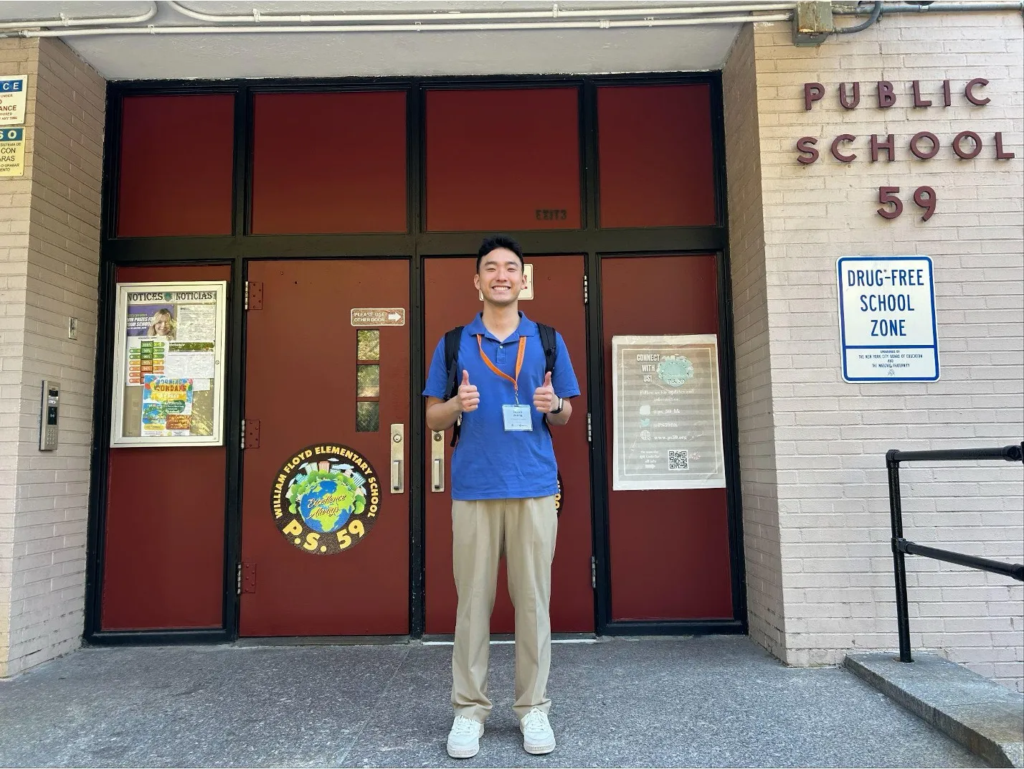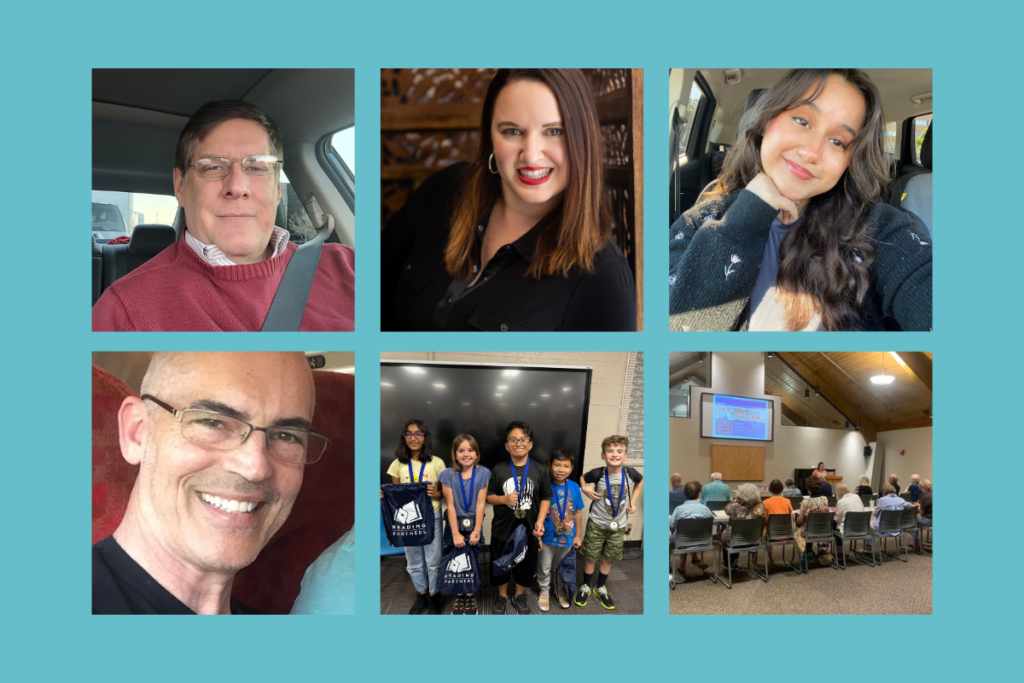Cop throws the book at Bayview kids as reading tutor
April 1, 2015
by Jill Tucker
April 1, 2015 / San Francisco Chronicle / Source
The police officer strode into the school on the southeast side of San Francisco, gun on his hip, blue uniform crisp, a no-nonsense look on his face. In this Bayview neighborhood, a cop often means something bad happened.
He stopped at the doorway of a classroom at Bret Harte Elementary and grabbed an orange lanyard with his name on it. The tag simply said, “Kyle.”
Officer Kyle Wren wasn’t at the school because there had been trouble; he was there to read.
Once a week, he volunteers with Reading Partners, a national nonprofit in 160 schools across the country that provides literacy support to 8,500 elementary school kids who lag behind their peers in reading. Wren is among 15,000 volunteers who are helping them catch up.
While there are a lot of volunteer tutoring or literacy programs in schools, Reading Partners is different.
For starters, it isn’t free. The program is in 15 schools in San Francisco, with each school paying about a third of the cost for the services, which are offered during school, after school or both.
The volunteers are trained to use the Reading Partners model, step-by-step instructions for each hour-long session. Each child is paired with a volunteer, who is expected to commit to be there at least once a week for a semester.
The hour includes the volunteer reading for 10 minutes, then working on letter sounds, vocabulary or comprehension, depending on the reading level of the child. Some of the lesson is scripted so the volunteer knows what questions to ask or how to help an early reader with, say, the “oo” sound in spoon, book or cool.
Effectiveness proven
Unlike many other programs, Reading Partners has been evaluated by independent researchers, who conducted a controlled study to quantify its effectiveness. For every month children are in the program, they gain a month and a half worth of literacy skills, said Michelle Torgerson, executive director of the organization’s Bay Area office.
Those results aren’t based on hunches or anecdotal evidence, she said.
“We use community volunteers in a really structured way,” Torgerson said.
The independent study, conducted by the nonprofit research group MDRC, has shown that students’ behavior improves as well as confidence in their academic ability.
Bret Harte Principal Jeremy Hilinski is a fan of the program.
The 1-to-1 attention is critical, he said. And it’s attention from the same volunteer week after week.
They have somebody who is only interested in them at that moment,
Hilinski said, adding that having consistent volunteers helps build confidence and trust in the kids. “I see the same faces over and over again. They’re a part of the community.”
Variety of volunteers
In addition to the academics, the program seeks to bring in volunteers with a wide range of backgrounds — tech workers, college students, retirees and police officers — to offer students exposure to a world of possibilities.
“We believe kids can’t have enough positive role modes in their lives,” Torgerson said.
Officer Wren is an imposing figure next to 8-year-old Adriana Rodriguez, his third-grade reading partner. But it was clear within the first minute of their hour together that she was not intimidated.
At her request, he pulled “Dork Diaries” off the shelf and read about a Halloween dance and whether the girls in the story would wear Beyoncé and Juliet costumes or trash bags as Adriana sits quietly next to him.
Then they reviewed vocabulary words like “bare” and “steep” and then moved on to an informational book about cheetahs that Adriana read out loud. The book addressed the eating habits of the wild animal.
“Would they eat us?” Adriana asked Wren. “What if we’re nice to them?”
“I don’t think they care about that,” he said, looking a bit uncomfortable with the line of questioning.
Love of books
Wren said he signed up to be a reading tutor because his parents had taught him to read and because he was always reading when he was a kid. He wanted to share that love of books.
But he also wanted to be more than a scary cop.
“Kids see you when parents are getting in trouble or something bad is happening,” he said. “If that’s the only interaction, what are they going to think?”
Reading with kids like Adriana “is completely absent that aspect of it.”
But working with kids isn’t easy, he said. Hardened criminals he can handle. But an 8-year-old?
“This is harder,” he said, smiling.
Adriana still isn’t quite sure what to make of her tutor. She said it’s “weird” that a police officer reads with her when they otherwise take people to jail.
Still, “it’s good,” she said. “I get to read a lot of books and I get to learn more things.”
And what does she think of Officer Wren? The third-grader smiled at the question, but looked a little confused at the name. She doesn’t call him that.
What does she call him? Adriana shrugged her shoulders as if the answer were obvious.
“Kyle,” she said.



